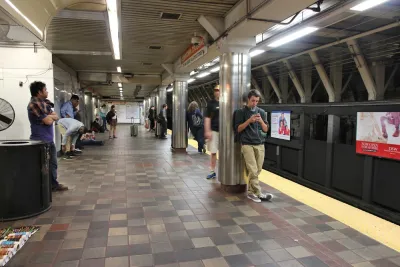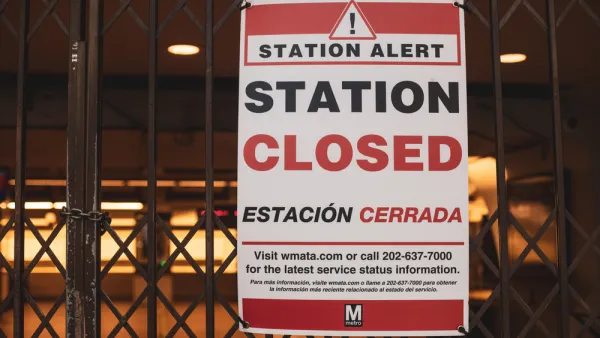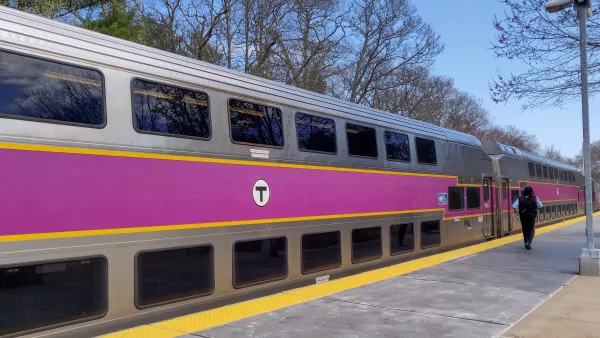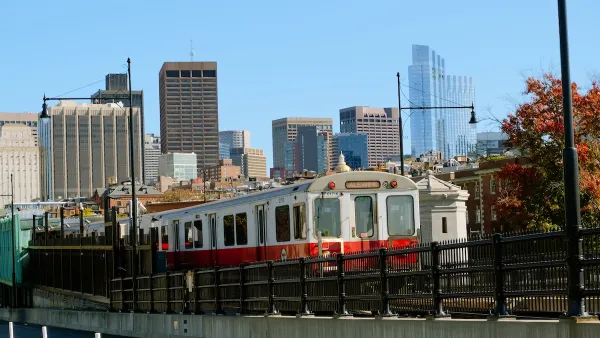Public transit agencies are responding to declining ridership during the Coronavirus outbreak by reducing service. But the right balance between safe, reliable, and sustainable will be hard to calibrate in these difficult times.

Adam Vaccaro reports: “With ridership drastically reduced due to the coronavirus outbreak, the MBTA is planning changes to service starting Tuesday, according to an internal memo sent to agency staff.”
“The memo from T general manager Steve Poftak did not describe the changes, but said they will be ‘based in part on ridership patterns and guidance provided by state public health officials,” according to Vaccaro.
The Washington Metropolitan Transit Authority recently reduced rush hour frequencies after ridership fell as a result of coronavirus concerns. As Vacarro notes, transit agencies will be challenged to find a balance of service, serving those who still require transit while ensuring trains don’t overcrowd and require too much physical proximity by riders:
Transit advocates on Sunday said it would be reasonable for the MBTA to reduce some service under the circumstances, but that the T must balance keeping service available for riders who work or must otherwise reach essential locations, such as grocery stores and healthcare facilities.
The T must also keep enough service to limit crowding on trains or buses that would more easily allow the virus to spread, they said. That could require targeted changes, route by route, especially on buses, advocates suggested.
In the San Francisco Bay Area, BART is posting daily updates ridership updates as coronavirus shuts down businesses and events around that region. The decision to post daily ridership updates was defended by the agency on Twitter thusly:
Communicating data is important.
It shows:
People are staying home if they can
There are people who must report to work and the role we play getting them there
There is no crowding, so riders can be reassured there is social distancing
It’s better than saying nothing https://t.co/mK0Jj2v2Iz— SFBART (@SFBART) March 16, 2020
In Seattle, Sound Transit and King County Metro have said they will temporarily suspend fare enforcement actions," according to an article by Mischa Wanek-Libman.
[Update: Public transit in Cedar Rapids is now free, although the reporting does imply that service could eventually be suspended" "City of Cedar Rapids Transit is continuing service as of Monday, March 16. To limit interactions, fares won’t be collected."
FULL STORY: MBTA planning service changes in response to coronavirus, memo says

Analysis: Cybertruck Fatality Rate Far Exceeds That of Ford Pinto
The Tesla Cybertruck was recalled seven times last year.

National Parks Layoffs Will Cause Communities to Lose Billions
Thousands of essential park workers were laid off this week, just before the busy spring break season.

Retro-silient?: America’s First “Eco-burb,” The Woodlands Turns 50
A master-planned community north of Houston offers lessons on green infrastructure and resilient design, but falls short of its founder’s lofty affordability and walkability goals.

Test News Post 1
This is a summary

Analysis: Cybertruck Fatality Rate Far Exceeds That of Ford Pinto
The Tesla Cybertruck was recalled seven times last year.

Test News Headline 46
Test for the image on the front page.
Urban Design for Planners 1: Software Tools
This six-course series explores essential urban design concepts using open source software and equips planners with the tools they need to participate fully in the urban design process.
Planning for Universal Design
Learn the tools for implementing Universal Design in planning regulations.
EMC Planning Group, Inc.
Planetizen
Planetizen
Mpact (formerly Rail~Volution)
Great Falls Development Authority, Inc.
HUDs Office of Policy Development and Research
NYU Wagner Graduate School of Public Service




























